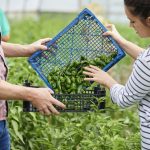Agricultural advocacy and policy play critical roles in shaping the future of food systems, rural economies, and environmental sustainability. As global challenges such as climate change, food insecurity, and the need for sustainable practices intensify, the importance of informed advocacy becomes increasingly evident. This article explores how individuals can engage in agricultural advocacy, highlighting the significance of understanding the landscape, key organizations, actionable steps, and effective engagement strategies with policymakers.
Understanding Agricultural Advocacy: Why It Matters Today
Agricultural advocacy is the process of promoting and influencing policies that affect agricultural practices, rural development, and food systems. This effort is vital not only for farmers and agricultural workers but also for consumers and communities that rely on a robust food supply. As issues like climate change, trade policies, and public health concerns take center stage, agricultural advocacy ensures that the voices of stakeholders are heard in decision-making processes that shape food systems and rural economies.
Today, the agricultural sector faces numerous challenges, including the need for sustainable farming practices, food security in a rapidly growing population, and economic pressures on small and medium-sized farms. Advocacy in this sector is not just about lobbying for farmers; it’s about crafting policies that will lead to a resilient and sustainable agricultural system. Understanding these complexities allows advocates to approach policy discussions with a well-rounded perspective, focusing on innovative solutions that benefit all stakeholders.
Moreover, engaged advocacy fosters collaboration among various entities—government agencies, non-profits, private sector actors, and community organizations. This collective approach can lead to comprehensive policies that address the multi-faceted nature of agricultural challenges. By understanding and participating in agricultural advocacy, individuals can contribute to a more equitable and sustainable food system that prioritizes people, the planet, and profitability.
Key Organizations Leading the Charge in Agricultural Policy
Numerous organizations are at the forefront of agricultural advocacy and policy formulation. Groups like the American Farm Bureau Federation and the National Farmers Union represent the interests of farmers and ranchers, advocating for policies that support rural communities and sustainable agricultural practices. These organizations often engage in lobbying efforts, working directly with lawmakers while also providing educational resources to their members on critical issues.
In addition to farmer-oriented groups, non-profit organizations such as the Environmental Defense Fund (EDF) and the Food and Agriculture Organization (FAO) of the United Nations play significant roles in shaping agricultural policy. Organizations like EDF focus on promoting sustainable farming practices that balance economic viability with environmental conservation, while FAO provides global leadership on food security and nutrition. These groups emphasize the importance of research and data-driven policies that can adapt to the changing dynamics of agriculture.
Lastly, grassroots organizations and community coalitions, such as the National Sustainable Agriculture Coalition (NSAC), empower local farmers and communities to advocate for their interests. These organizations often work at the intersection of policy advocacy and community engagement, ensuring that local voices are represented in broader agricultural discussions. By aligning with these organizations, advocates can leverage resources, research, and networks to enhance their efforts in agricultural policy advocacy.
Steps to Become an Effective Advocate for Agriculture
To become an effective advocate for agriculture, individuals should first educate themselves about the current agricultural landscape, including major policy issues and challenges faced by farmers and communities. This involves staying informed about legislation, understanding agricultural practices, and recognizing the economic and social factors influencing the sector. By gaining a robust understanding of these topics, advocates can engage more meaningfully in discussions and policy formulation.
Next, aspiring advocates should connect with local agricultural organizations and networks. Many communities have cooperative extension services, local chapters of national organizations, and advocacy groups focused on specific issues, such as sustainable farming or food justice. By participating in meetings, workshops, and events hosted by these organizations, individuals can build relationships, learn from seasoned advocates, and develop their own advocacy skills.
Finally, advocates should consider honing their communication skills, which are crucial for effective advocacy. This includes learning how to articulate their positions clearly, engage in constructive dialogue, and utilize social media platforms to amplify their messages. Crafting compelling narratives and using data to support claims can enhance an advocate’s ability to influence policymakers and the public, ultimately driving meaningful change in agricultural policy.
Engaging with Policymakers: Strategies for Success
Engaging with policymakers involves developing strategic approaches to ensure that agricultural interests are brought to the forefront of discussions. One effective strategy is to schedule meetings with local, state, or federal representatives to discuss specific agricultural issues. Personal stories and local impacts can resonate with policymakers, making the issues more relatable and urgent. Advocates should come prepared with concise information and clear asks, whether it’s support for a specific bill or a call for increased funding for agricultural programs.
Another strategy is to participate in public forums, town hall meetings, and stakeholder consultations where policy discussions are taking place. These settings provide opportunities for advocates to express their views and influence the narrative around agricultural policies. It is essential for advocates to articulate the importance of agriculture not just for farmers but for the entire community, emphasizing economic contributions, job creation, and food security.
Finally, leveraging social media and traditional media platforms can amplify advocacy efforts. Writing op-eds, engaging in public discussions, and utilizing platforms like Twitter or Facebook can help reach broader audiences and draw attention to critical agricultural issues. By combining grassroots efforts with effective communication strategies, advocates can create a groundswell of support that encourages policymakers to prioritize agriculture in their agendas.
Engaging in agricultural advocacy and policy is not only an opportunity to influence critical decisions affecting our food systems and rural communities but also a responsibility for those invested in the future of agriculture. By understanding the landscape, connecting with key organizations, taking actionable steps, and employing effective strategies to engage with policymakers, individuals can become powerful advocates for agricultural sustainability and innovation. As we face a future filled with challenges, informed and passionate advocacy will be essential in shaping a resilient agricultural sector that benefits all stakeholders involved.








